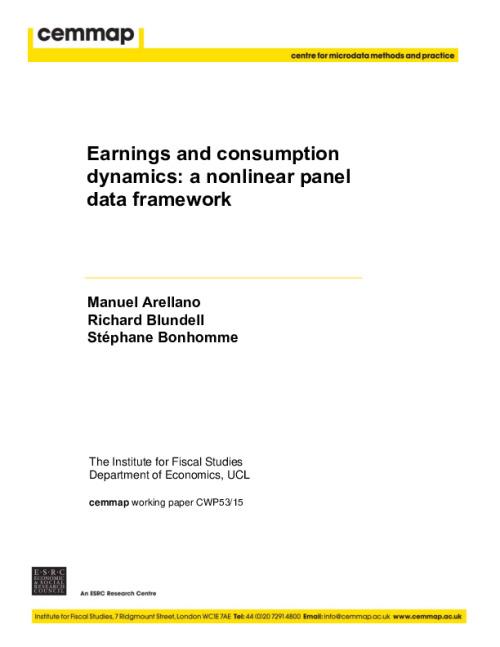We develop a new quantile-based panel data framework to study the nature of income persistence and the transmission of income shocks to consumption. Log-earnings are the sum of a general Markovian persistent component and a transitory innovation. The persistence of past shocks to earnings is allowed to vary according to the size and sign of the current shock. Consumption is modeled as an age-dependent nonlinear function of assets and the two earnings components. We establish the nonparametric identification of the nonlinear earnings process and the consumption policy rule. Exploiting the enhanced consumption and asset data in recent waves of the Panel Study of Income Dynamics, we find nonlinear persistence and conditional skewness to be key features of the earnings process. We show that the impact of earnings shocks varies substantially across earnings histories, and that this nonlinearity drives heterogeneous consumption responses. The transmission of shocks is found to vary systematically with assets.











